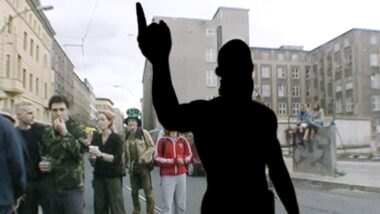Hier mal mehr Infos zum Broadcast-Flag Verfahren in den USA, welches über die Zukunft des digitalen Fernsehens entscheiden könnte:
Sehr ausführlich geht das The Liminousvoid Weblog auf die Gerichtsverhandlung ein:
A “broadcast flag” is basically a switch or encoding in a digital television signal that tells the receiver of the signal some features of the rights that the broadcaster is claiming, particularly the right to copy or rebroadcast the signal. The FCC issued a ruling that all consumer electronic devices, including PC’s, would have to respect a digital broadcaster’s flag settings when it came to redistribution — though not copying — of content.
The ALA is concerned that this will stifle the use of broadcast works — like normal TV shows, in distance learning programs over the internet. More broadly, this scheme makes an end run around fair use: if it were legal for you to send a sample of a TV program to a friend in order to discuss it, you wouldn’t be able to. It also captures the public domain, as public domain materials that had a broadcast flag wouldn’t be able to be rebroadcasted. Lastly, everyone is concerned that this scheme could mean the regulation — and requirement of prior governmental approval — of any consumer device that reads digital TV signals: including PC’s and even open-source/free software.
Es folgt eine Auflistung der Argumentation, die vor Gericht von beiden Seiten verwendet wurde.
Dann gibts noch folgende Links, die interessant sind:
Ars Technica: Broadcast flag could be on thin ice
USA-Today: U.S. appeals court debates anti-piracy TV technology
EFF: Challenging the Broadcast Flag in Court
Urheberrecht.org: Anwaltsgruppe geht gegen geplante Verordnung zum Schutz digitaler Inhalte vor
Und nun gibts auch den passenden Heise-Artikel dazu: „Richter kritisiert US-Regulierer wegen Kopierschutzmerkmal für Digital-TV“
Die US-amerikanische Regulierungsbehörde Federal Communications Commission (FCC) hat nach Meinung von Richtern des Court of Appeals for the D.C. Circuit ihre Kompetenzen überschritten, als sie Ende 2003 festlegte, dass die Hersteller von digitalen TV-Receivern ab Juli 2005 bei ihren Geräten das Auswerten des Broadcast Flag ermöglichen müssen. Bürgerrechts-, Datenschutz- und Bibliotheks-Organisationen waren gegen diese Bestimmung vor Gericht gegangen. Die Richter Harry Edwards und David Sentelle sagten laut US-Medienberichten, zwar habe die Unterhaltungsindustrie zu Recht Bedenken, Filme in hoher Qualität ohne Schutz vor möglichen Urheberrechtsverletzern auszusenden, doch habe die FCC hier keine Weisungsbefugnis.




0 Ergänzungen
Dieser Artikel ist älter als ein Jahr, daher sind die Ergänzungen geschlossen.